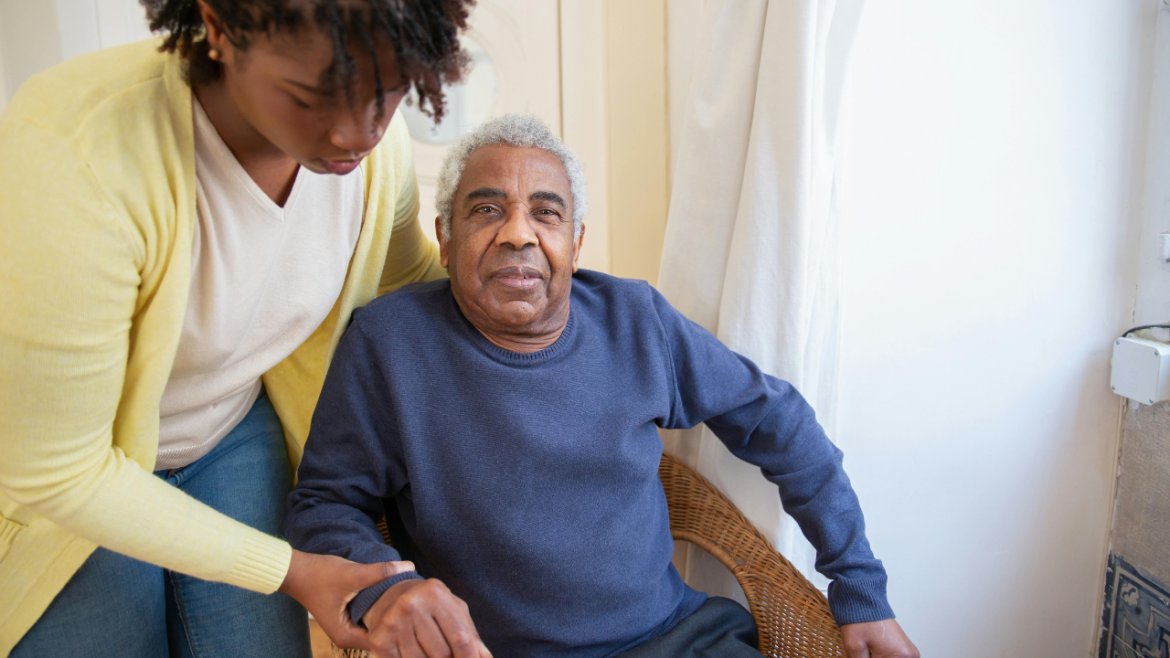How In-Home Senior Care Builds Meaningful Relationships
Did you know that Leading Edge Senior Care has a Dementia Support Group? We meet monthly in Mesa. For more details <click here>
How In-Home Senior Care Builds Meaningful Relationships
In-home senior care is more than just providing medical assistance or daily living support. It fosters deep and meaningful relationships that significantly enhance the emotional well-being of seniors. The personalized care and companionship offered by in-home caregivers play a crucial role in creating a nurturing environment. This environment helps seniors feel valued and connected, countering the isolation and loneliness that often come with aging.
The Role of Companionship in In-Home Care
Companionship is a cornerstone of in-home senior care. Caregivers are not just there to assist with physical needs; they are also present to offer emotional support and friendship. Many seniors face loneliness due to the loss of loved ones or reduced mobility, which limits their social interactions. In-home caregivers fill this gap by providing consistent companionship. They engage in conversations, share activities, and celebrate special moments with the seniors, creating a bond that goes beyond professional duty.
For example, a caregiver might spend time listening to a senior’s stories about their past, which not only provides emotional comfort but also helps in maintaining cognitive function. These shared experiences and interactions build trust and a sense of security, making the senior feel more at ease and less isolated.
Personalized Attention and Emotional Support
One of the significant advantages of in-home care is the personalized attention that seniors receive. Unlike institutional settings where caregivers have to divide their time among many residents, in-home caregivers can focus on one individual. This dedicated attention allows caregivers to understand the unique needs and preferences of the senior, tailoring their care approach accordingly.
Emotional support is a critical aspect of this personalized care. Caregivers become attuned to the emotional cues of the seniors, recognizing when they need encouragement, reassurance, or simply someone to listen. This emotional sensitivity fosters a deep connection, helping seniors feel understood and respected.
Building Trust Through Consistency and Reliability
Trust is fundamental in any relationship, and it is particularly vital in the caregiver-senior dynamic. Consistency and reliability are key factors in building this trust. When seniors see the same caregiver regularly, it creates a sense of stability and predictability. They know who will be helping them each day, which reduces anxiety and stress.
Caregivers who consistently show up on time and follow through on their commitments demonstrate reliability. This reliability reassures seniors that they can depend on their caregivers, strengthening the bond between them. Trust grows over time, transforming the caregiver from a mere service provider to a trusted companion and friend.
Enhancing Quality of Life Through Engaging Activities
In-home caregivers often engage seniors in activities that are both enjoyable and beneficial for their overall well-being. These activities range from simple hobbies like gardening or baking to more structured exercises like yoga or physical therapy. Participating in such activities together enhances the quality of life for seniors and deepens the caregiver-senior relationship.
Shared activities provide opportunities for meaningful interactions and create positive experiences. For instance, working on a gardening project together not only provides physical exercise but also fosters a sense of accomplishment and teamwork. These shared moments build camaraderie and joy, making the caregiving relationship more fulfilling for both parties.
Supporting Independence and Dignity
A key objective of in-home care is to support the independence and dignity of seniors. Caregivers assist with daily tasks while encouraging seniors to do as much as they can on their own. This balance of support and independence is crucial for maintaining the self-esteem and autonomy of seniors.
When caregivers respect and promote a senior’s independence, it builds mutual respect. Seniors feel valued and empowered, knowing that their abilities and choices are honored. This respect forms the foundation of a meaningful and respectful relationship.
The Impact of Empathy and Compassion
Empathy and compassion are essential qualities in caregivers that significantly impact the relationship with seniors. Caregivers who show genuine empathy and compassion can connect with seniors on a deeper emotional level. They understand the challenges and frustrations that come with aging and respond with kindness and patience.
This compassionate approach creates a safe and nurturing environment where seniors feel comfortable expressing their needs and emotions. The emotional bond formed through empathy and compassion enhances the overall caregiving experience, making it more rewarding and effective.
Conclusion
In-home senior care goes beyond meeting physical needs; it is about building meaningful relationships that enrich the lives of seniors. Through companionship, personalized attention, trust, engaging activities, support for independence, and compassionate care, in-home caregivers create a nurturing environment that enhances the emotional well-being of seniors. These meaningful relationships are the heart of in-home care, providing seniors with the connection and support they need to thrive in their later years.

